DJ Spooky: Seoul Counterpoint
The musician spins a live internet tale of two cities at NYC’s La MaMa this weekend

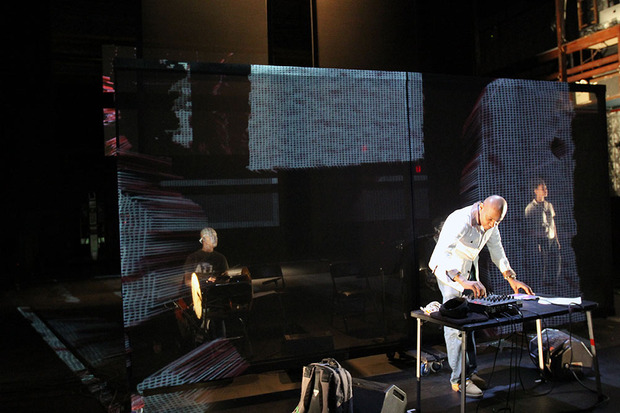
When we last checked in with Paul D. Miller aka DJ Spooky, he was finishing up his year-long residency at NYC’s Metropolitan Museum of Art. Seems like he hasn’t taken a break since: Miller was then the 2014 artist-in-residence at Seoul Institute of the Arts, an experience which bloomed into an exploration of electronic music, DJ culture and history of other cultures.
Seoul Institute of the Arts has been partnering with NYC’s La MaMa Experimental Theatre Club for over 30 years. In 2009, the two organizations together founded CultureHub, an offshoot art and technology center at La MaMa. One of the center’s first endeavors was to build mirror studios in Seoul and NYC, where artists in both cities could perform together through internet-based teleconferencing. DJ Spooky demonstrates the potential of such cultural exchange in the culminating event of his residency—”Seoul Counterpoint.” We dropped in on a rehearsal at La MaMa’s Ellen Stewart Theatre in the East Village for a behind-the-scenes look.
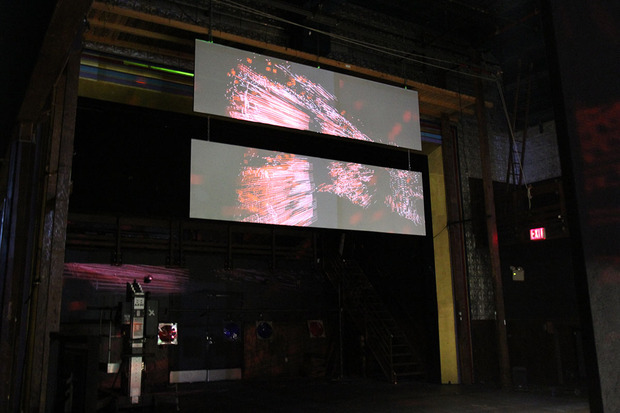
Miller will be DJing from his eponymous app—a version of Musicsoft Arts’ DJ Mixer—on three different iPads while sharing the stage with musicians (who are playing violin, Korean percussion, and the traditional 12-stringed gayageum) and La MaMa dancer Miriam Parker. They won’t be alone, however—making use of CultureHub’s telepresence technology, they’ll be doing a real-time collaborative performance with a chorus, as well as modern masked dancers, almost 7,000 miles away in Seoul. During the rehearsal, we heard powerful pansori-style vocals, snippets of the sorrowful haegeum and more that Miller had recorded in Korea, being processed and juxtaposed against tight snare hits and deep kick drums in his signature beats. Instead of feeling like a remix or mash-up, or even crossover music, the performance is unlike any other; the two histories, landscapes and cultures are truly performing as a duet, sonically and visually.
The first iteration of “Seoul Counterpoint” was performed two weeks ago in front of an audience at Namsan Arts Center in Seoul, and it will now be presented to the NYC audience in what Miller describes as a more “sit down, atmospheric” format. Miller worked with musicians, artists and composers, writing an hour’s worth of notated music, with special focus on counterpoint technique—hence the name. “When you have counterpoint in musical theory, you have different motifs overlapping in different ways, so it’s call and response,” he says. “Having all of these different motifs and elements going simultaneously—that’s the way we live now.” (Miller adds that Steve Reich’s early minimalism classic “New York Counterpoint” was another source of inspiration.)
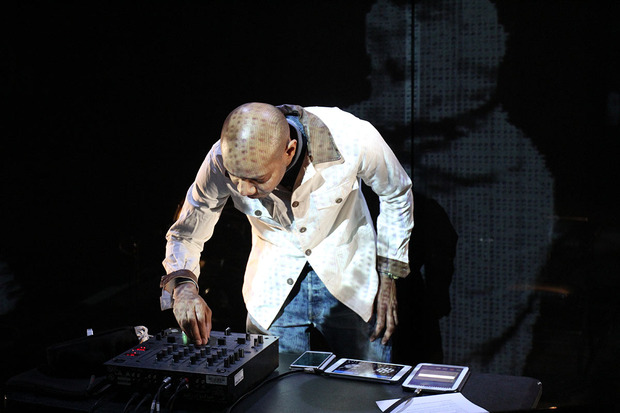
Sampling has opened up a whole global dialogue with what it means to make an authentic statement, from whatever culture you’re coming from.
“The whole initiative of the project was to show there was more of a connection between different points of view,” says Miller. “And what happens with electronic music and DJ culture is cosmopolitan. People move between scenes, they move between styles; and that’s to be celebrated. Sampling has opened up a whole global dialogue with what it means to make an authentic statement, from whatever culture you’re coming from. So if I’m an African-American sampling a Brazilian record and remixing it with Egyptian music—like, who knows? Like what Eric B. & Rakim did with Paid In Full, where they sampled a woman who’s an Egyptian singer and mixed it over a hip-hop beat with James Brown funk; it’s problematic about authenticity. But the good news is that kids will press play and hear the mix. In the 21st century, all of these cultures are mixing and transforming—DJ culture is where all of that is happening.”
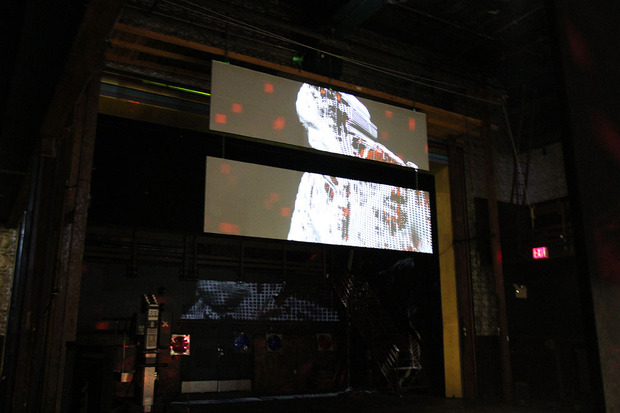
Providing the backdrop to Miller’s music is the technological “set” created by CultureHub. When they first started building codecs for telepresence, the hardware cost around $30,000; today, that price is around $5,000—although there’s still lots of room for glitches and malfunctions, which is why more people haven’t adopted the internet-based technology. “We live in a constant state of [nervousness]; I consider it like the Wild West,” says CultureHub’s Artistic Director, Billy Clark. “We had a workshop with England and the whole internet grid in southern Manhattan just went out; it’s not going happen. It’s very risky but we have enough experience now—[but] you never know. We try to structure it in a way where if it can’t happen, we can work around it and keep going and we just keep our fingers crossed, because we think there’s value and people need to be working in this space. Eventually, it’s going to become super commonplace; we’re just at the fringe of it.”
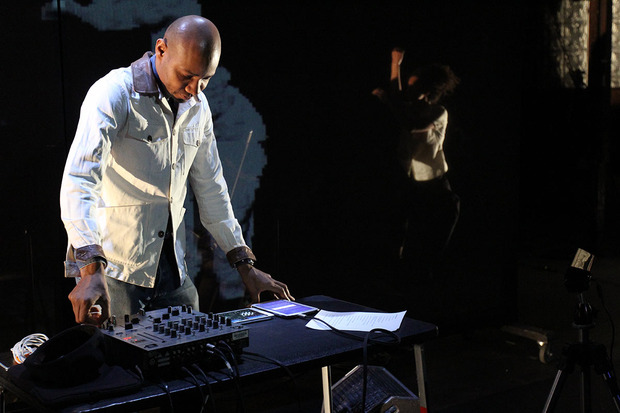
Using hacked Kinects as depth-sensing cameras set up around the stage, CultureHub’s technical director Jesse Ricke has created interactive visuals for the show; they’re real-time 3D avatars in 3D space of the dancers, musicians, even Miller himself, that can be affected by the audio, and manipulated in different ways—blurring the line further between the physical and the digital realms. And the images in the far background, though abstract, are actually derived out of imagery from Seoul and New York; on occasion, you’ll be able to spot the landscapes “breathe through” and be able to recognize familiar scenery.
Three performance of “Seoul Counterpoint” will take place this weekend, 11-13 April 2014, at 7:30PM in La MaMA’s Ellen Stewart Theatre; tickets are $25 ($20 for students and seniors) and can be purchased online or by calling 212-475-7710. From 12-4PM on Saturday, “Heavenly Code,” an interactive installation designed by CultureHub, will be on view—it’s free and open to the public. For those not in NYC, the Sunday performance will be live streamed at the CultureHub website.
Thumb image courtesy of Theo Cote, all others by Nara Shin












